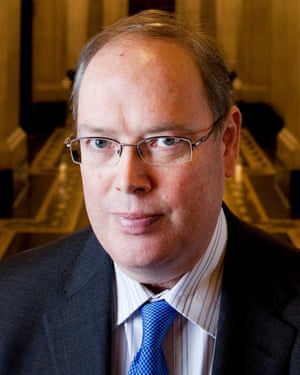David Blanchflower
Professor of economics at Dartmouth College, New Hampshire, and member of the Bank of England’s monetary policy committee (MPC) from June 2006 to May 2009

What is inflation and why does it matter?
This means the OBR’s next forecast which will come in November for the budget will inevitably mean their predictions for growth will have to be slashed by at least half. As a consequence, the public finances are in much worse shape than the chancellor has claimed, given there is likely much less growth. It remains unclear whether the OBR are just incompetent or are the government’s poodle. The public pays for this nonsense.
Fears of Brexit continue to have a major negative effect on the economy. The fall in the pound, which picked up recently, has had a major impact on inflation, which hit 3% this month. Inflation will likely fall back in 2018 as these one-off effects drop out of the calculations which means this is no time for a rate rise as the economy slows.
Andrew Sentance
Senior economic adviser at the PwC consultancy and member of the Bank’s MPC from October 2006 to May 2011

The past month has seen a further surge in inflation, while the data on economic growth has been relatively subdued. The main drag on the UK economy at present is consumer spending, with retail sales volumes recording the slowest growth since 2013. However, anecdotal and survey evidence also supports the view that Brexit is holding back investment activity. With the world economy growing quite healthily, and our key export markets in Europe strengthening, we should expect UK business investment to be powering ahead. Instead, capital spending by UK businesses declined last year and has been pretty flat through the first half of this year.
Both of these drags on the UK economy are Brexit-related, with the rise in inflation heavily driven by the decline in the value of the pound since the EU referendum. The weakness of domestic investment and consumer spending is preventing the UK benefiting from a general upswing in the global economy and an improvement in growth in the rest of the EU. As a result, there is a significant risk that the UK will find itself at the bottom of the G7 growth league in 2017, after being No1 or No2 in the previous four years – 2013 to 2016.
The MPC is expected to push through an interest rate rise next month, despite subdued growth, and I believe the committee would be right to do so. A rate rise – and the promise of more to come – should help sterling and take some of the inflationary pressure off consumers. A gradual policy of edging interest rates up would also head off an unwanted surge in borrowing which is at risk of developing on the back of prolonged low-interest rates. The MPC has already left it too long to start the process of gradually raising interest rates and should not put it off any longer.
Courtesy theguardian.com










